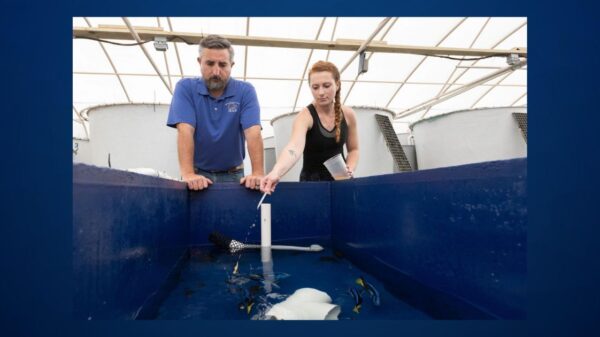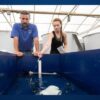U.S. Sen. Marco Rubio, R-Fla., is continuing the push for the “Advancing the Quality and Understanding of American Aquaculture (AQUAA) Act” which would “establish national standards for sustainable offshore aquaculture.”
U.S. Sen. Roger Wicker, R-Miss., first introduced the bill in September 2020 with Rubio and U.S. Sen. Brian Schatz, D-Hi., cosponsoring it. Wicker brought the bill pack last week.
“The bill would designate the National Oceanic and Atmospheric Administration (NOAA) as the lead federal agency for marine aquaculture. The legislation would also direct NOAA to harmonize the permitting system for offshore aquaculture for farms in federal waters, and direct the agency to lead a research and development grant program to spur innovation throughout the industry,” Rubio’s office noted when the bill was first brought out.
Rubio’s office maintained that the bill would help the American seafood industry.
“Aquaculture refers to the farming of fish, shellfish, and algae in water for food. Over 90 percent of the seafood in the United States is imported, 50 percent of which is derived from aquaculture. Currently, there are no active aquaculture farms in U.S. federal waters,” Rubio’s office noted.
“Aquaculture is the fastest-growing food production sector, but the U.S. lacks a comprehensive, nationwide system for permitting in federal waters,” Wicker said on Thursday. “This deficiency prevents the development of aquaculture farms, leading to more seafood imports. Our legislation would establish national standards for offshore aquaculture, enabling U.S. producers to create jobs and meet the growing demand for fresh, local seafood.”
“Marine aquaculture presents an enormous opportunity for Florida’s economy and for the food security of our nation,” Rubio said. “Unfortunately, the absence of a federal permitting and regulatory framework has hindered American aquaculture industries. This bipartisan legislation would establish a transparent permitting process and provide regulatory certainty for this important industry to promote new domestic seafood supply chains.”
“Hawai‘i’s diverse aquaculture produced over $80 million of finfish, shellfish, and algae in 2019. At the same time, the movement to restore native Hawaiian fishponds such as those at He‘eia and Maunalua continues to develop momentum. This bipartisan bill would increase federal support for both,” Schatz said. “I thank Senators Wicker and Rubio for their partnership, and look forward to working with them to pass this groundbreaking legislation.”
The bill was sent to the U.S. Senate Commerce, Science, and Transportation Committee last week. So far, there is no companion measure in the U.S. House.






















